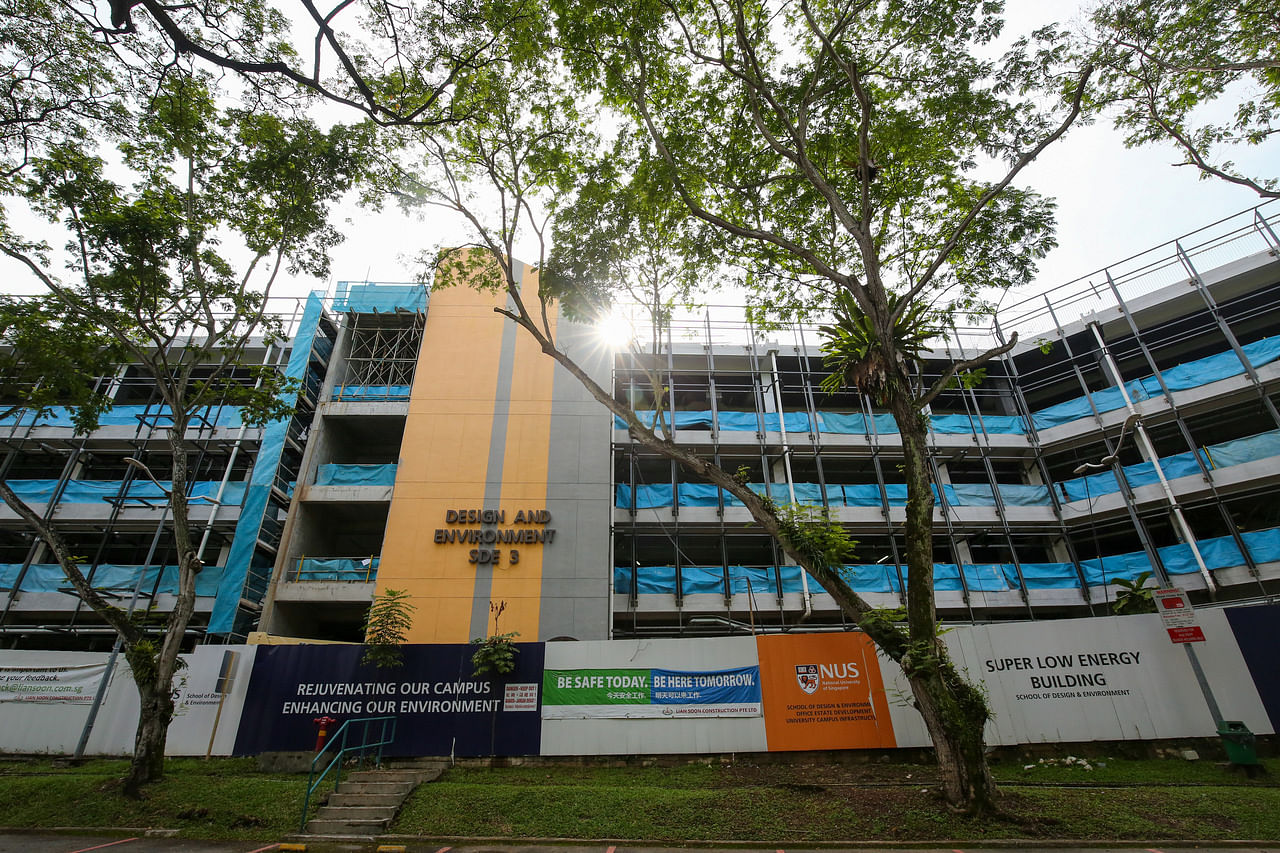NUS clinches top BCA award for green buildings after picking up 50 Green Mark certifications
Sign up now: Get ST's newsletters delivered to your inbox

NUS' School of Design and Environment adopted strategies to slash energy use by more than 50 per cent.
PHOTO: LIANHE ZAOBAO
Follow topic:
SINGAPORE - The National University of Singapore (NUS) picked up the top Building and Construction Authority (BCA) award for sustainable developments on Friday (Sept 17).
Named the Green Mark Platinum Champion after clinching 50 Green Mark certifications for buildings across its campuses this year, NUS was among 18 winners at the annual Green Mark Awards.
The university, which aims to have a carbon-neutral campus by 2030, has adopted a mix of sustainable design and construction strategies to lower its carbon footprint in recent years.
Its Faculty of Engineering Block E2A and Frontier buildings, as well as its School of Design and Environment, adopted strategies like maximising natural ventilation, motion sensor LED lighting and solar panels to slash energy use by more than 50 per cent, said BCA.
By 2019, the university had lowered its energy consumption by 4 per cent and its water use by 3 per cent compared with 2016 - despite expanding its developed area by 6 per cent.
Among the Green Mark Platinum Zero Energy award winners were Keppel Bay Tower, Nanyang Technological University's Academic Building South and the International French School's new kindergarten buildings.
This award is given to buildings certified for zero energy or super low energy consumption.
Lendlease's Paya Lebar Quarter 3 and Old Hill Street Police Station were winners of the BCA Green Mark Pearl Awards, which recognises landlords of office buildings, retail malls or business parks that have helped their tenants achieve Green Mark certification within their tenanted premises.
A total of 305 projects that earned Green Mark certifications between April last year and June this year were in the running for this year's awards.
The BCA recently revised its green building rating system, launching the Green Mark 2021 scheme at the International Built Environment Week 2021, which ran from Sept 7 to 10.
Besides raising standards for energy performance, the scheme also emphasises sustainability and health and wellness outcomes, in line with the Singapore Green Building Masterplan.
Among the goals of this masterplan is to have at least 80 per cent of new developments classed as super low energy buildings from 2030.
Greening buildings not only combats climate change but also can reduce costs, BCA added.
"An independent review of BCA's Green Mark scheme carried out in 2019 showed that Green Mark buildings are able to reap positive net present value throughout its life cycle, with the cost savings outweighing the upfront investment cost."
For instance, Keppel Bay Tower's greening initiatives will translate to cost savings of about $400,000 annually, the agency added.
The company's new 32-storey development in Tanjong Pagar - Keppel Towers - has smart and sustainable features made to improve energy efficiency and the health and wellness of its occupants, said BCA.
Correction note: This article has been edited for clarity.

